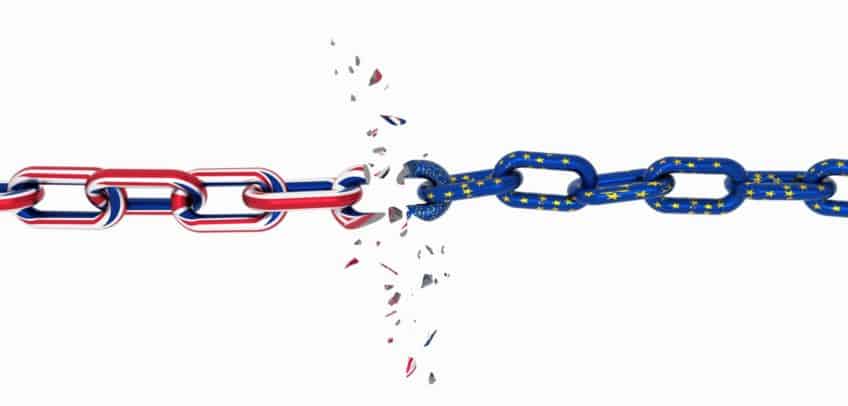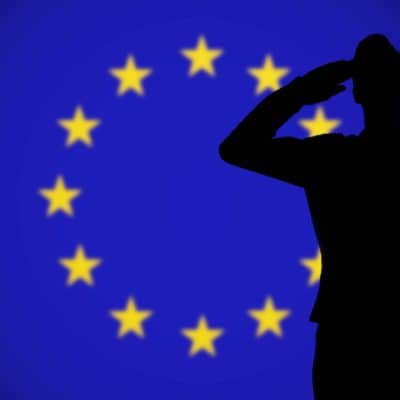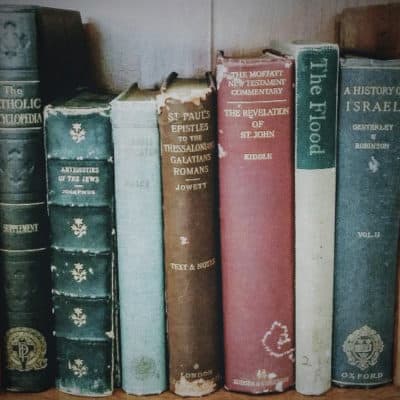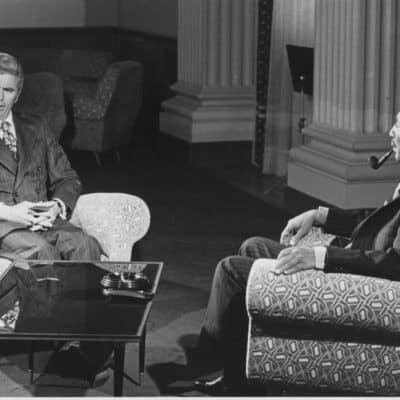“It is a mistake to try to look too far ahead. The chain of destiny can only be grasped one link at a time.” – Winston Churchill
The British exit from the EU has been the biggest shock to the European structure in decades. Nearly four years have passed since the vote in June of 2016. Endless debate, negotiations, and multiple elections finally culminated in the formal exit of the United Kingdom from the European Union on January 31, 2020. The UK continues under EU rules until the end of this year while many of the most important details of their future relationship still have to be settled.
Trade, industry regulation, immigration, refugee policy, and continuing involvement in many pan-European projects have not yet been worked out. Consequently, the ultimate impact of Brexit is still unclear. The whole process has been perplexing at times, particularly as we try to grasp the interplay of overlapping political structures from across the pond.
The importance of the changes at hand should not be underestimated. The geopolitical alignment of some of the world’s most powerful and influential nations is currently fluid. How will Brexit affect the future of European integration? Will the ability to negotiate with Britain independently cause other major nations, such as the USA and China, to rethink their agreements with the EU? Even with the UK as a member, European financial outlook has been dismal. Will Brexit deliver enough tangible benefits to hold the United Kingdom together, or will bitterness from those who voted “remain” seek to tear it apart?
We have a tendency to use the terms United Kingdom or Great Britain or England interchangeably though each has a specific implication, the misapplication of which might offend our dear cousins. The islands themselves, regardless of political division, are named Great Britain and Ireland. They and their smaller associates are collectively the British Isles. Currently on the island of Great Britain we have England, Wales, and Scotland, all of which are part of the United Kingdom. On the island of Ireland we have Northern Ireland, which is part of the United Kingdom, and the Republic of Ireland, which is a separate country and a member of the European Union.
Now for some abbreviated history. Wales was formally meshed with England under the famous Tudor dynasty, which originated in Wales. An act of Parliament in 1542 also declared the English ruler “King of Ireland,” replacing the title “Lord of Ireland,” which had been granted by the pope, fearing its withdrawal during Henry VIII’s break with Catholic authority. English control over Ireland rarely proved more than nominal; the governments remained separate though they shared a monarch. This situation was fated to recur.
James VI of Scotland had a similar experience. A descendant of Henry VIII’s sister Margret Tudor’s marriage to James IV, he became James I of England after the death of the childless Elizabeth. War between Scotland and England had raged for many years and the unity brought by a single monarch did not equal peace along the border. James sought to combine the governments of his realms.
As the first ruler of England, Scotland, and Ireland he styled himself the King of Great Britain and Ireland. The English Parliament repudiated this usage but history shows that James persisted in his unifying endeavors and the title appears on letters, coinage and treaties. James’ rule is significant in many ways. He published the Authorized King James Version of the Bible. He survived the Gunpowder Plot, an act of Catholic terror which sought to blow up the King, his family, and all Parliament. The visage of the infamous Guy Fawkes is commonly worn by protesters today. Hopefully they are ignorant of its origins.
During James’ regency, British colonization in America began. He granted the charters for the first colonies. Jamestown bears his name and was the first successful permanent settlement. He was also a scholar and author. Notably William Shakespeare and Sir Francis Bacon worked during his reign. He also established the Ulster Plantation, settling many Scottish and English in north eastern Ireland, which is arguably the basis for Northern Ireland remaining a part of the United Kingdom rather than the Republic of Ireland today. James’ legacy reveals the origin of what would be the future of Britain.
The divsion of the British Isles remained largely unchanged until the 20th Century. The largest empire in history grew from these islands. It contained a quarter of the world’s population at its height. Though emerging victorious from World War II, the price was financial ruin. Only a loan from the United States, which wasn’t completely repaid until 2006, prevented national insolvency. The dissolution of the Empire became inevitable and was largely peaceful. Countries were granted independence after forming stable governments. The Commonwealth of Nations still exists and has 54 members, all of whom participate voluntarily on the basis of shared history and common values. Of these 54 nations, 16 still recognize the British Monarch as their Head of State.
The split with what would become the Republic of Ireland happened in the period between the two World Wars. The Irish had claimed independence in 1916 during the Easter Rising but were quickly put down. Resentment increased until the Irish War of Independence, which largely consisted of guerrilla attacks and subsequent reprisals. Sinn Féin, the political counterpart to the notorious Irish Republican Army, eventually won control of enough of the country to negate British authority.
The Anglo-Irish Treaty formally concluded hostilities with Britain but instigated the Irish civil war. Many considered the treaty a betrayal on account of a clause allowing Northern Irish counties to opt out of the proposed Irish state. From this time we have the formal name currently used, The United Kingdom of Great Britain and Northern Ireland.
Thus began decades of violence, murder, and terror. The situation was not even nominally diffused until the Good Friday Agreements of 1998. Both Ireland and the United Kingdom agreed to respect the decision of Northern Ireland. The language is open-ended and both parties agreed to facilitate any future change in allegiance.
This division of the island has been a major obstacle to Brexit negotiations between the UK and the EU. Ireland is a member of the EU and as long as the United Kingdom was as well, this “international” border could remain open and unregulated. Violence was a certainty (and some murders occurred even during the discussion) if any sort of hard border were put in place. The contentious “Irish Backstop” was former Prime Minister Theresa May’s solution to prevent any border friction.
The key to understanding Mrs. May’s politically fatal attachment to the Irish Backstop is her reliance on Northern Irish MPs to sustain her government. Her majority only existed with the support of the Democrtatic Unionist Party (DUP) which is dominant in Northern Ireland. The DUP could not survive a hard border (possibly literally) nor would they support any weakening of ties with the United Kingdom. The Backstop guaranteed an open border and would require the UK (all of it, not just Northern Ireland) to remain in a customs union with the EU until some other solution could be reached.
The problem was that there were no other acceptable solutions. It is impossible to negotiate different terms for commerce between the UK and EU and leave an unregulated land border as a gaping back door around them. It undermines the entire notion of Brexit if the UK is bound to an indefinite, insoluble customs union. Consequently Mrs. May’s deal failed to pass Parliament time and again, leading to multiple delays and ultimately her resignation.
She was replaced by Boris Johnson, a former mayor of London, who had previously been her foreign secretary and a leader of the Brexit campaign. Taking over the coalition conservative government Boris boldly proclaimed he would take the UK out, the hard way if necessary. He proceeded to renegotiate the exit deal with the EU, which was considered an impossibility until he succeeded.
Defying the attempts of parliament to modify his deal, the passage of which was likely barring disaster, the country headed to the polls. It was a make or break moment for Boris as no minority party was willing to form a coalition. The election gave the conservatives 365 seats, almost 40 more than necessary for a majority government, and made a clear path for the passage of Boris’ exit deal.
The main difference between the deals was of course Northern Ireland. As it stands they will be receiving the best of both worlds when it comes to trade. They will not pay tariffs on goods coming in from the EU or the UK, only goods passing through Northern Ireland will be taxed. This will take place at ports and airports. Furthermore, four years after this takes effect the people of Northern Ireland will vote on whether to continue in the deal. Another difference was the more ambiguous “Political Declaration” based on “provisions ensuring a level playing field for open and fair competition” dealing mainly with the regulation of labor, environmental policy, taxation, and subsidized industries. What exactly all that will entail is yet to be seen.
When the 2016 Brexit referendum took place, 48.1% of participants voted remain and 51.9% voted leave, achieving victory by more than a million votes. Over 72% of the 46 ½ million strong electorate cast a ballot. What makes the future uncertain is the potential reaction from entire regions that voted to remain. Northern Ireland chose remain by a margin of over 10%, though the result was split by district. As was discussed earlier, they have a clear legal path out of the United Kingdom if they should so choose in the future. The DUP does not support PM Johnson or his deal. Since its approval, Irish elections have revealed a surge in support for Sinn Féin, which is dedicated to a unified Ireland.
In Scotland the majority in every district chose to remain, securing 62% of the votes overall. There is a long history of contention between Scotland and England. In 2014 a referendum was held in Scotland as to whether or not they would leave the UK, becoming an independent country. They chose not to (by 10%) but Brexit has served to reignite the issue. In a recent interview one of the principal architects of Brexit, Nigel Farage, stated that the key to Scottish contentment lay in a beneficial fishing arrangement with the EU. Economic benefit is the likely route to a satisfied post-EU Britain generally speaking as well.
Boris Johnson is seeking to make an agreement he believes will do just that. He has been open to a free trade relationship, like the one that the EU has with Canada, or a less comprehensive framework primarily limited to what has already been negotiated. He is determined to avoid regulatory alignment, though some measure of parity is already indicated in the exit deal. He rejects “any jurisdiction for the CJEU (Court of Justice of the European Union) over the UK’s laws, or any supranational control in any area, including the UK’s borders and immigration policy.” Nor is he open to extending the transition period beyond the end of this year.
The EU on the other hand wants to make the final decision on whether or not British financial institutions can do business in their territory, a matter of significant importance to the UK. They also want visa-free travel, no tariffs, and a level of integration on taxes, aid, labor, and environmental regulation that may prove unpalatable. Clearly the EU is seeking a closer relationship than the UK.
Much still has to be decided in this often bewildering saga. Losing Britain is undeniably a blow to the European Union. Other members may decide to leave should their exit prove overtly beneficial, yet the UK needs it to be a smashing success to hold their own country together. Who needs who more? Doom was predicted for Britain should they leave, but as negotiations near their conclusion they seem to have gained the initiative.
For decades the Church of God has preached that the UK would not be part of the beast power to eventually rise out of Europe. Nor does the EU in its present configuration possess the power, either economically or militarily, or the religious inclination to fulfill these dire prophesies. Brexit marks a drastic change in the status quo however. Already Germany is the dominant force in the EU. Should the EU crumble, many nations would find themselves even more firmly in Germany’s grasp.
Consider the potential shift in the future of Europe. Most of the benefits they have awarded themselves are unsustainable, yet riots break out at the mere mention of austerity. The European Central Bank is actually utilizing negative interest rates (that’s where they charge you to keep your money in the bank) and has been for years to fight low inflation and cause credit growth. Has not economic calamity always been the most likely cause of a major realignment in Europe?
Vast numbers of refugees have been allowed and encouraged to migrate not only for the humanitarian reasons typically espoused, but in an attempt to offset aging and decreasing populations. Liberal European values however are anathema to most of their new citizens, and rather than integration we see cloistering and violence. The Vatican has completely revamped its image and the thrust of its outreach into a menagerie of progressive idealism with a strong dose of central control.
Hopefully Brexit will mean a bright and prosperous future for the United Kingdom. It has been welcomed as a step back from globalism and the European monolith whose decisions threaten international peace and financial stability. The world as it is today owes a great deal to the resolution and sacrifice of the United Kingdom, particularly in World War II. We certainly pray for their future and the continuation, sovereignty, and blessing of their union.










